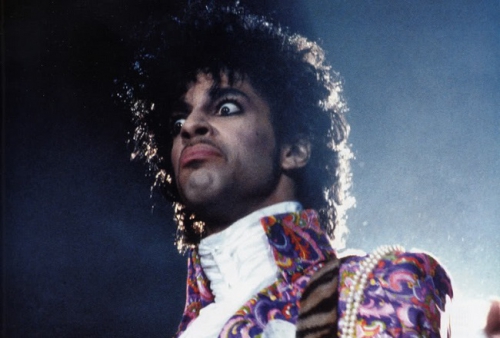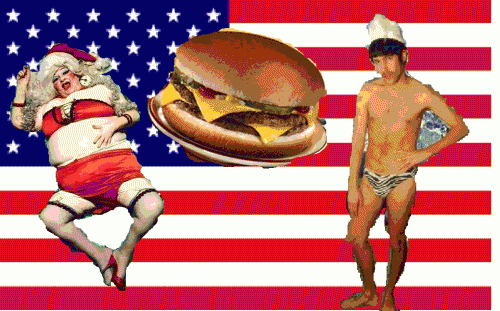As I already showed in these columns, Alexis de Tocqueville is the best commentator of the modern agenda of alienation, giving aristocratic critics to the American matrix which starts its nuisances at the beginning of the nineteenth century. Tocqueville foresees a bleak American future for Europe and the whole world. His analyses are as implacable as those of Edgar Poe, a violent opponent to the so-called democratic order, as writers like Hawthorne or Melville.
In his famous book about democracy, Tocqueville describes and explains the destruction of the two victim races of these times, the blacks and the Indians. We shall start by the black slaves:
The Negro of the United States has lost all remembrance of his country; the language which his forefathers spoke is never heard around him; he abjured their religion and forgot their customs when he ceased to belong to Africa, without acquiring any claim to European privileges.
The black slave is thus the prototype of the global citizen desired by the magazine the Economist and the New World Order agenda. He has no past, no family, and no nation:
The Negro has no family; woman is merely the temporary companion of his pleasures, and his children are upon equality with himself from the moment of their birth.
Half the babies born in France have no father nowadays! Today's parents are their children's pals! And who knows his babushka in America? Why do you think so many people stroll around in the shopping centres nowadays?
Like the masses of today obsessed by sex, money and fame, driven by pleasures, captivated by the rich and famous storytelling, the American slave adores his masters:
The slave scarcely feels his own calamitous situation... he admires his tyrants more than he hates them, and finds his joy and his pride in the servile imitation of those who oppress him: his understanding is degraded to the level of his soul.
This modern slave or modern man, adds Tocqueville, doesn't love freedom, for independence is often felt by him to be a heavier burden than slavery. He is just manipulated by his desires, fabricated fantasies and material needs. As if he has inspired the Prisoner of McGoohan, Tocqueville writes:
A thousand new desires beset him, and he is destitute of the knowledge and energy necessary to resist them: these are masters whom it is necessary to contend with, and he has learnt only to submit and obey. In short, he sinks to such a depth of wretchedness, that while servitude brutalizes, liberty destroys him.
The destruction of the Indians has different meanings. The Blackman symbolised the weak or the poor, the submitted proletarian, the Indian the feudal lord, the warrior, doomed to disappear during the industrial revolution, like the religious man. Marx made the same analysis in his famous manifesto. This man of elite is such sentenced to disappear by the civilization of money-lenders and businessmen:
When the North American Indians had lost the sentiment of attachment to their country; when their families were dispersed, their traditions obscured, and the chain of their recollections broken; when all their habits were changed, and their wants increased beyond measure, European tyranny rendered them more disorderly and less civilized than they were before.
A simple animal, or a mere sinner, the man is easily mind-programmed by consumption; and the brave and frugal Indians inevitably fell in front of the new needs and strange goods:
The Europeans introduced amongst the savages of North America fire-arms, ardent spirits, and iron.... Having acquired new tastes, without the arts by which they could be gratified, the Indians were obliged to have recourse to the workmanship of the whites; but in return for their productions the savage had nothing to offer except the rich furs which still abounded in his woods.
Tocqueville in every page of this marvellous and unread book sees the perils of the so-called American civilization. One of these perils is of course pollution and... noise. The noise produced by isolated colons could thus exasperate the Indians, hastening a cruel stroke. Let's understand the causes of these reactions:
Thousands of savages, wandering in the forests and destitute of any fixed dwelling, did not disturb the beasts of chase; but as soon as the continuous sounds of European labour are heard in their neighbourhood, they begin to flee away, and retire to the West...
The retirement of the game meant for the Indians discombobulated anguish, exhausting migrations and a progressive starving. The race was thus exterminated passively, the invaders needing no such massacres and slaughters as one could believe. This is the same mean Hitler, this great admirer of Anglo-Saxon America, wanted to use in Russia (I say wanted, for the people there resisted more, and so had to be slaughtered by the colonial conqueror until the defeat of the last).
Last but no least: if we contemplate the disastrous cultural balance of this civilization, couldn't we admit that she is one of the worst ever occurred? Tocqueville admits that the Spaniard conquest of the south continent was horrible; yet the Indians survived, mixed and intertwined with their masters, thus creating the beautiful Hispano-American civilization. You have tens of architectural masterworks and ancient colonial cities in southern America, and how many in the US?
Anyway, and this remark must be underlined at the hour of philanthropic and humanitarian wars anywhere (Palestine, Syria, Libya, Afghanistan... not to mention the past ones), Tocqueville thinks that the American modern way of life (or death) is more destructive than any other. And he had not in mind the McDonald's, the highways, the desperate suburbs, the shopping malls and the amusement parks!
The Spaniards were unable to exterminate the Indian race by those unparalleled atrocities which brand them with indelible shame, nor did they even succeed in wholly depriving it of its rights; but the Americans of the United States have accomplished this twofold purpose with singular felicity; tranquilly, legally, philanthropically, without shedding blood, and without violating a single great principle of morality in the eyes of the world. It is impossible to destroy men with more respect for the laws of humanity.
Tolkien writes somewhere that a monster (he refers to giant spider Ungoliant) finishes up the job devouring his own flesh. This is what happens to American civilization today. Philanthropically, she is destroying herself. But unhappily humanity who has chosen this way of death, in the East like in the South, is doomed too, since the American matrix has overcome any resistance.
Yet childish technology, money obsession, humanitarian wars and amusement parks will take us nowhere. We need to replace the American way to design a new world.
Nicolas Bonnal





 del.icio.us
del.icio.us
 Digg
Digg